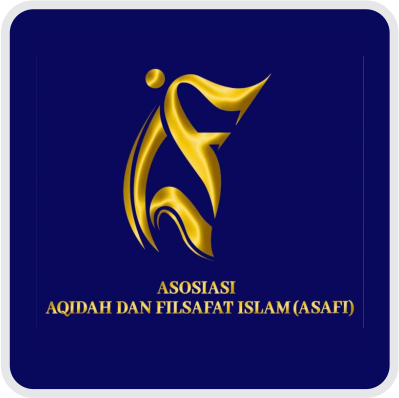The Concept of Monotheistic Humans Privileges in the Perspective of Muhammad bin Abdul Wahhab
DOI:
https://doi.org/10.30983/itr.v1i1.6424Abstract
People do not often realize that humans who believe in (monotheism) will get privileges from Allah SWT. The matter makes todays people less interested in tawhid. As a result, various deviations occur in the midst of Muslims life, such as a spiritual crisis which indicates that there has been a mistake in human perspective. This article explains what privileges will be obtained by monotheistic humans according to Muhammad bin Abdul Wahhab. This study used the literature or document study method in qualitative research with interpretation analysis techniques. The data used are primary and secondary. The primary data comes from the writings of Muhammad bin Abdul Wahhab. Then, secondary data is relevant literature to Muhammad bin Abdul Wahhab. According to him, the privileges obtained by monotheistic humans are; monotheism eradicates sins, and whoever practices monotheism will enter heaven and get peace of heart and soul. These findings can have implications for humans who do not practice monotheism, do not believe, or are unaware of the privileges that humans will gain.
References
Abbas, N. (2015). Muhammad bin Abdul Wahhab: Gerakan Revivalisme dan Pengaruhnya. Jurnal Dakwah Tabligh, 16(2), 133–147. https://doi.org/https://doi.org/10.24252/jdt.v16i2.6115
Al-Faruqi, I. R. (1982). Tauhid: its implementation for thought and life. The International Institute Of Islamic Though.
Al-Utsaimin, A. ash-S. (2011). Tarikh al-Mamlakah al-Arabiyyah as-Su‟udiyyah (XVI). As-Syarif.
Amin, S. (2019). Eksistensi Kajian Tauhid Dalam Keilmuan Ushuluddin. Tajdid, 22(1), 72.
Asmuni, Y. (1993). Ilmu Tauhid,. PT RajaGrafindo Persada.
At-Tamimi, S. M. (2014). Kitab Tauhid Pemurnian Ibadah Kepada Allah (M. Y. Harun (trans.)). Darul Haq.
Burhanuddin, N. (2017). Ilmu Kalam Dari Tawhid Menuju Keadilan (2nd ed.). Prenada Media Jakarta.
Fadhullah, H. (1994). Islam Dan Logika Kekuaatan (A. Muhammda (trans.)). Pustaka.
Hasanah, L. (2011). Tauhid: Dasar Pengembangan Kurikulum Pendidikan Islam. Al-Hikmah, 8(1), 96.
Nasution, H. (1972). Teologi Islam. UI Press.
Pratama, F. A., & Trisnawati, I. (2021). Pemikiran Tajdid Syaikh Muhammad bin Abdul Wahhab dalam Kitab al-Ushul ats-Tsalatsah. Zawiyah: Jurnal Pemikiran Islam, 7(2), 94–110. https://doi.org/10.31332/zjpi.v7i2.3104
Syaikh Muhammad Al-Utsaimin, S. kitab T. (2017). Syarah kitab Tauhid (Asmuni (trans.); I). PT Darul Falah.
Wahhab, M. B. A. (2011). Majmuat Muallafat As Syekh Muhammad Bin Abdul Wahhab (II). Darul Qosim.
Wahhab, M. bin A. (2000). Syarah Tsalasatul Ushul (mengenal Allah, Rasul, dan Dinul Islam) (A. Zur’ah (trans.)). Pustaka Asyabab.
Wahhab, M. bin A. (2004a). Aqidah Muhammad bin Abdul Wahhab al-Salafiyah wa asaruha fi al-‘Alam al-Islamy. Imadah al-Bahsal-‘Ilmiy bi al-Madinah al-Munawwarah.
Wahhab, M. bin A. (2004b). Kitab Tauhid Memurnikan Laa Ilaaha Ilallah (E. Haryono (trans.)). Media Hidayah.
Wahhab, M. bin A. (2005). Ar Rosail Syakhsiyah (IV). Attiba’ah Assudiyah.
Wahhab, M. bin A. (2017). Fathul Majid Penjelasan Lengkap Kitab Tauhid (S. A. bin H. A. Asy-syaikh (trans.)). Darul Haq.
Wahhab, S. M. bin A. (2000). Kitab Tauhid Al-Ladzi Huwa Haqullah ‘Ala ‘Al-Abid (M. Yusuf (trans.)). Yayasan Al-Sofwa.
Waskito, A. (2012). Bersikap Adil Pada Wahabi. Pustaka Al-Kautsar.
Downloads
Published
Issue
Section
Citation Check
License
Copyright (c) 2023 Delavia Andrea Fererli and Efendi

This work is licensed under a Creative Commons Attribution-ShareAlike 4.0 International License.


